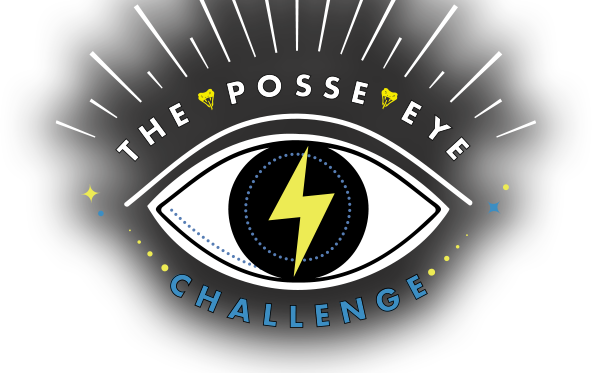This is for all your self-identified writers out there — no matter the genre of the writing world you operate in.
We writers are unique creatures of communication and context, wielding our words as weapons of expression. And as wearers of the “Writer Hat”, we share some common habits. Let’s see if any of these 6 resonate with you …
1. We read a lot
You’ve probably heard this multiple times — the best writers read a lot. Not just memoirs, news articles or the classics but also fantasy, poetry and even slightly indulgent magazine fluff. Why? Studies show that reading actually expands your vocabulary.
And if you’re digging into Leo Tolstoy’s War and Peace or scanning through an academic journal, you’ll probably learn a new word or two.
Of course the caveat is curiosity — when unsure of a word or expression, writing it down and doing a quick google search will give you the necessary ‘Aha moment’ of clarity. Then you’ll be subconsciously using it in your next piece of written work.
But even when diving into your light-hearted no-shame Saturday afternoon harlequin your writing skills will still benefit. Because in addition to increasing empathy, reading helps bring words you already recognize from your passive memory into your active memory.
This means when you try to express yourself, you’ll more easily recall a variety of vocab. Which, for us writers, is the magical juice that fuels our craft.
2. We’re always taking notes
Sometimes ideas flow and sentences form in the most inconvenient places, like in the shower or on a crowded bus. These phrases, plot ideas, headlines or characters develop suddenly in our brains catching us completely unawares. They cry out to be immediately put on paper or risk disappearing into thin air….
That’s why when you open up the notepad or journal of a writer (remember to ask us first!) you’ll likely see scribbles, phrases, ideas and flow charts.
It might seem chaotic and nonsensical in the eyes of an outsider, but to its author these pages contain the sacred ingredients for our next story, poem or email sequence. The antithesis of order, our physical and digital notepads are the canvas to our creative palette. The messy medium to convey our ideas.
And as writers we usually have a plethora of creative projects on the go. Our originative brains whir with ideas. They beg for our precious time, time we often just don’t have enough of, to execute them.
That’s why our notepads and journals are the perfect place to store them, until we have the capacity to birth our ideas-in-infancy into fruition.
3. We’re usually too hard on ourselves
Imposter syndrome — the dreaded feeling that you have no clue what you’re doing, yet everyone else seems to be under the impression you do.
Some estimate that at least 70% of us will experience this unwelcome phenomenon at some point in our lives. But for writers, it feels especially heavy when we put our whole heart into something that’s served up on a platter for the big bad world to judge.
Whether it be a manuscript, sales page, poem or blog post the persistent jitters that have you impulsively refreshing your email to check for feedback, is completely normal.
Writing is highly subjective. Unlike a piece of code that either works or doesn’t, it can’t truly be ‘right’ or ‘wrong’. And that’s part of its beauty. Writing thrives in nuance, the diversity of expression and in powerful meaning making.
Of course, that’s hard to remember when your work is getting chewed up by your client or Internet trolls.
When and if that happens — take a deep breath.
We writers need to chill more and stop beating ourselves up or ripping ourselves apart. Even when we face criticism, we can meet it level-headedly without slipping into a vortex of negativity and self-hate.
It’s easier said than done, of course. But since most of us sensitive souls struggle with this Imposter Syndrome thing maybe we can take some perspective and comfort in our fellow writing community.
4. We can be seclusive
Or at least perceived that way. Huddled away with our headphones on and our fingers furiously typing or scribbling away, any minor interruption can break our flow and precious stream of consciousness.
When we’re zoned-in and honed-in all interjections are unwelcome — even untimely hunger pains or trips to the loo. So if we come across as offstandish, it’s not personal, it’s just the way we get our work done. And we know our resting writer’s face probably doesn’t help….
Writing itself is a solitary thing. And while we do the bulk of our work independently, us writers still benefit immensely from community and collaboration. Despite intentionally sequestering ourselves, well-balanced writers will make an effort to socialize and find connection from our seclusion.
Community is highly necessary to keep us both sane and inspired.
5. We think too much
Writers tend to over analyze things to pieces. It’s both a superpower and a curse.
Our minds are likely going a mile a minute (another reason why we take notes to keep up) with fresh projects, creative ideas but also perspective taking and analysis.
All good writers must master the art of empathy — to connect and understand our readers, the characters we describe, the client we write on behalf of and the customers we reach.
In order to truly understand diverse motivations, situations and conflicts, we tend to inundate our minds with reasons, perspectives and detail. Our affinity for empathy, emotional aptitude, and general giving-a-damn means we tap in, observe and relate.
Wizards of words — we summon adjectives, verbs and analogies to convey feelings accurately. That means we’re always noticing the details so we can do justice to complex emotions.
6. We love emojis
Remember when emojis (or emoticons, whatever you call them) were limited to a mere : ) and : ( and ; ) ?
Fast forward to 2020 and you’re surrounded with a smorgasbord of choice when you open up Skype, WhatsApp, iMessage or Facebook. These emojis help convey every single nuance. And we writers love them — from texting our friends, to writing emails to writing copy. Why?
They bring the depth and flavor of our written word to a whole new level, when used appropriately of course. When getting a message across — emojis act as stand-ins for body language or facial expressions. They can provide warmth and dimension to a message.
And sometimes they are just more accessible and easier to understand than a complex or fancy adjective or adverb.
Studies indicate that emojis are a form of communication as real as words. They also suggest that people who use emojis more often may even be nicer.
Another reason why emojis are in every writer’s arsenal.
And there are 6 telltale signs that you’re a writer at heart. How many of these are you feelin’, Posse? Let us know if we missed one!
XOXO
The Copy Posse





